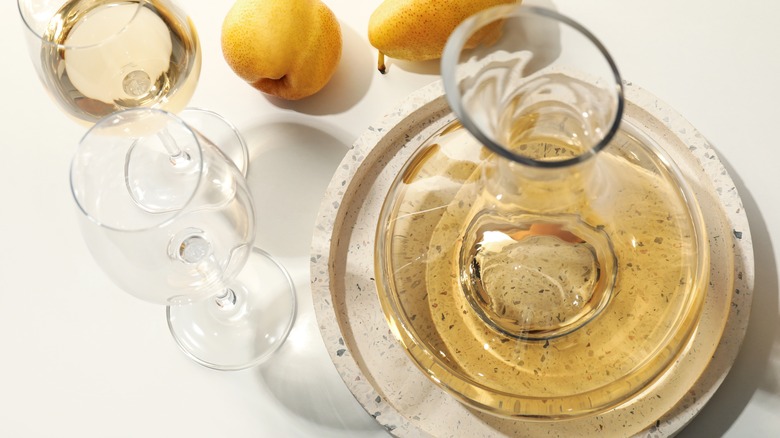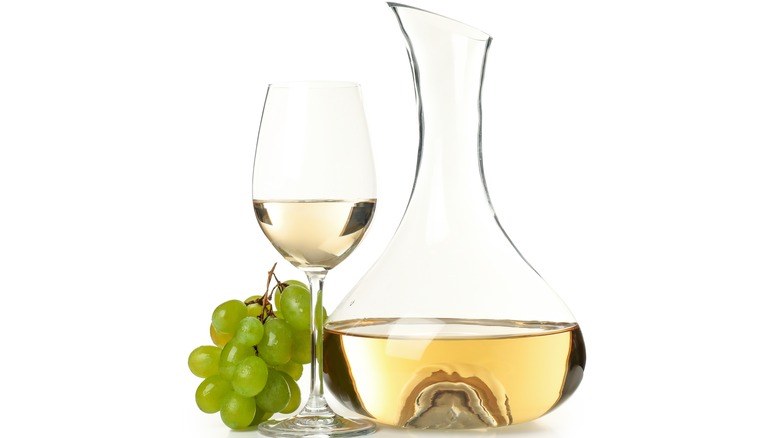The Reason You Usually Don't Need To Decant White Wine
To decant, or not to decant? It's a question that's probably crossed your mind when opening a bottle of red. But, if you've ever wondered whether white wines should also be decanted, we're here to set the record straight. White wine can be decanted. Sommeliers might actually recommend doing so, depending on the bottle. However, the practice isn't very common for white wines based on a few factors.
The goal of decanting is to make wine more palatable. As it's poured from the bottle into a secondary vessel, oxygen comes into contact with the wine, working to improve taste and texture by softening harsh tannins. Astringent and mouth-drying tannins, however, are characteristic mainly of red wines. Present in varying degrees in any red wine, tannins are extracted from grape skins, seeds, and stems during the maceration process, and can even be imparted through aging in wooden barrels — white wines usually aren't macerated, nor do they age in oak, which explains their virtually tannin-free profile.
Tannins aside, decanting also isn't the norm because many styles of white wine are meant to be enjoyed young; aeration will only rid them of their fresh and fruity quality. Plus, since many whites lack the attributes for aging, they won't eventually produce a natural buildup of sediment in the bottle, which means decanting isn't necessary from an aesthetic standpoint, either. But, that's not all — decanting even risks warming white wine, which is best served at cooler temperatures.
Definitely decant these white wines
Decanting white wine isn't totally out of the question; it can help certain complex whites that are still developing in the bottle, just as much as it can better showcase the richness of various aged wines. However, to understand exactly which bottles benefit from decanting, it's important to consider a few key details.
First and foremost, any white wines with expressed tannins can and should be decanted. Think: Any orange wine or barrel-aged Chardonnay. Additionally, a white Burgundy or Abruzzese Trebbiano, but even an Austrian Grüner Veltliner or Hungarian Furmint made in a reductive style are also viable options for decanting. What's more, any young bottles with an abundance of sediment (like that of a natural wine), or older bottles displaying tartrate crystals can be decanted to improve visuals, as well. Decanting can even improve some sweet white wines and bottles of bubbly — but, that's a story for another day.
When it comes to how long white wine should be decanted, it's best to keep things brief. Generally, the process shouldn't exceed 15 minutes, or the wine can risk both aromatic and structural losses. Plus, the wine will become unpleasantly warm (gross!) to drink. Just be sure to use smaller decanters to limit the amount of oxidation for the best results. With that in mind, decanting white wine no longer needs to be a taboo, nor does it need to be intimidating.

